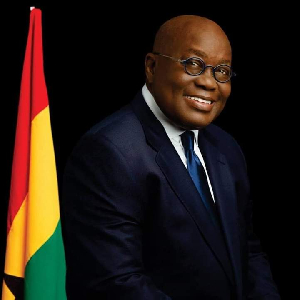Ebanbo Blog Blog of Wednesday, 9 October 2024
Source: Ebenezer Ansah-Boafo
The political risks of delaying the Anti-LGBTQ+ Bill in Ghana

The delay in passing the anti-LGBTQ+ bill in Ghana has become a contentious political issue, stirring debates across the nation. The recent Family Values March, which saw thousands of religious leaders and citizens peacefully protest in Accra, is a clear sign of the growing frustration. These groups, with strong religious and cultural convictions, are demanding that the President append his signature to the bill that has already been passed by Parliament.
Ghanaian society, deeply rooted in traditional and religious values, sees the delay as a reluctance on the part of the presidency to fully align with the majority's stance on the matter. With elections fast approaching, this issue has become highly politicised, with the opposition NDC capitalising on the situation. They have strategically framed the President’s silence as support for LGBTQ+ rights, a position that could alienate a significant portion of the electorate.
This has escalated pressure on the government to take a definitive stand, as many Ghanaians believe the bill's passage would safeguard the country’s cultural and moral integrity. However, there is a balancing act to consider. Human rights activists, both local and international, have warned that passing such a law could damage Ghana’s reputation globally and strain relationships with key development partners.
The political implications of delaying this decision are undeniable. It opens the door for opponents to exploit the situation for electoral gain, potentially damaging the NPP’s chances in the upcoming elections. Yet, rushing the decision without careful thought could also have long-lasting consequences on Ghana’s international standing. The President must find a way to address the concerns of the majority while carefully managing diplomatic and human rights considerations. The longer the delay, the more politically costly it becomes.
What's your mind? Share your thoughts with us














